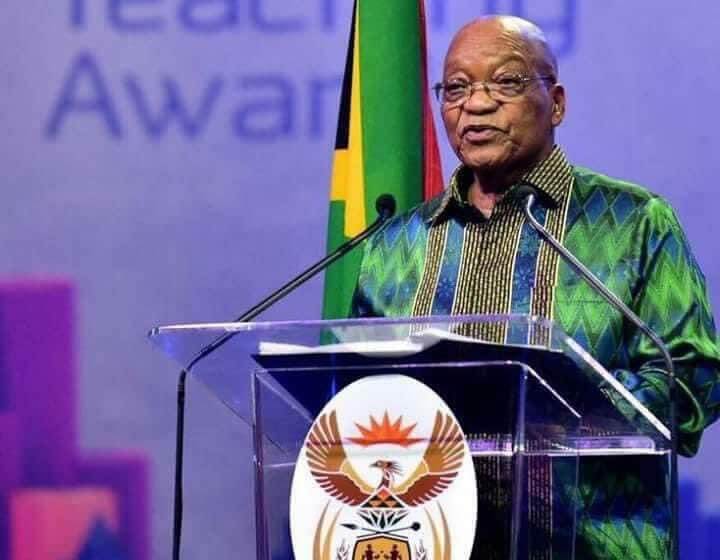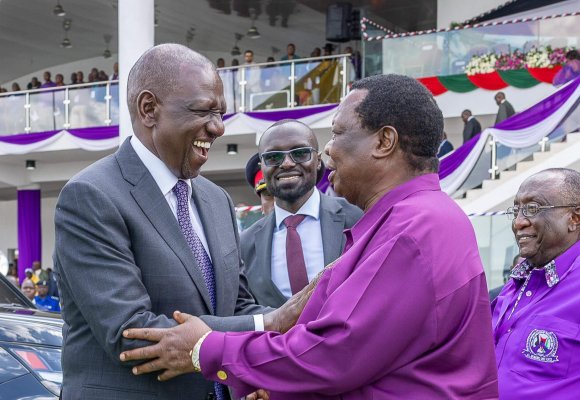|
LISTEN TO THIS THE AFRICANA VOICE ARTICLE NOW
Getting your Trinity Audio player ready...
|
Jacob Zuma Suspended from ANC over Rival Party Launch
The African National Congress (ANC) Monday suspended former President Jacob Zuma from the party he once led, citing his refusal to vote for it and his launch of a rival organization. The decision was announced by Secretary-General Fikile Mbalula, who stated, “Zuma and others whose conduct is in conflict with our values and principles, will find themselves outside the African National Congress.”
Zuma’s nine-year presidency from 2009 was marred by scandals. An official inquiry found that he prioritized the interests of corrupt associates over the nation in a scheme known as “state capture.” He was imprisoned in 2021 for refusing to testify before the inquiry, and currently faces corruption charges related to a 1999 arms deal. Despite these controversies, the ANC had previously tolerated Zuma. However, his creation of the new party, uMkhonto we Sizwe (MK) – sharing the name of the ANC’s former armed wing – proved to be a bridge too far.
The ANC accuses Zuma of demeaning the “proud history of armed struggle against the apartheid regime” through his “opportunistic use of military symbolism.” They further claim that MK solely exists to “erode the support base of the ANC.”
President Cyril Ramaphosa, who replaced Zuma in 2018 on a promise to clean up the government, now leads an embattled ANC into this year’s general election.
While Zuma claims he will “die a member of the ANC,” he has also launched scathing attacks on Ramaphosa and declared his mission to “rescue” the “once-great movement” from within.
Despite being viewed by many as a symbol of past wrongs, Zuma retains significant support. Thousands protested his 2021 jailing, and recent polls suggest nearly one in three South Africans approve of him. It remains unclear how much of this translates to votes for MK, but the new party is likely to cost the ANC votes.
This year’s election is shaping up to be the most competitive since the ANC’s 1994 rise to power, with the party facing internal divisions and a formidable challenge from opposition parties.
Ethiopia Regains First Plane After Decades in Italy’s Possession
A historic red two-seater plane, once Ethiopia’s first and a symbol of national pride, has finally returned home after nearly nine decades in Italy’s possession. The handover, celebrated on Tuesday by Ethiopian Prime Minister Abiy Ahmed, marks a significant step in relations between the two countries and a poignant return of a stolen piece of history.
Named “Tsehay” in honor of Emperor Haile Selassie’s daughter, the aircraft was built in 1935 as a collaboration between German pilot Herr Ludwig Weber and Ethiopian engineers. It took to the skies for the first time in December of that year, covering a short distance of 30 miles from Addis Ababa in a seven-minute flight. By the time it was abandoned in 1936 as Italian forces approached the capital, Tsehay had logged around 30 hours of flight time.
Italy’s fascist regime, under Benito Mussolini, occupied Ethiopia (then known as Abyssinia) in 1935, and Tsehay was among the spoils of war. It was taken to Italy and has been displayed at the Italian Air Force Museum since 1941. Now, after years of discussions and negotiations, the plane has finally been returned to its rightful owners.
Prime Minister Abiy Ahmed hailed the return as a “day of great pride for Ethiopians,” sharing photos of the gleaming red plane on his social media. He expressed his gratitude to the Italian government, particularly Prime Minister Giorgia Meloni, for facilitating the handover.
The Italian defense ministry acknowledged the plane’s significance, calling it a “unique specimen.” Defense Minister Guido Crosetto stated that the return “represents a very strong message” of Italy’s desire to strengthen its bond with African nations and promote dialogue and international cooperation.
The handover of Tsehay comes amidst Italy’s renewed focus on its relationship with Africa. Leaders and representatives from 45 African nations recently gathered in Rome to hear about the “Mattei plan,” a policy inspired by former oil company Eni founder Enrico Mattei who advocated for Italy to support African development in the 1950s.
Tsehay’s return is more than just the homecoming of a historical artifact; it symbolizes a potential turning point in Ethiopia-Italy relations and a commitment to reconciliation and mutual respect. The plane, once a testament to colonial dominance, now stands as a reminder of the importance of cultural heritage and the enduring spirit of a nation.











LEAVE A COMMENT
You must be logged in to post a comment.